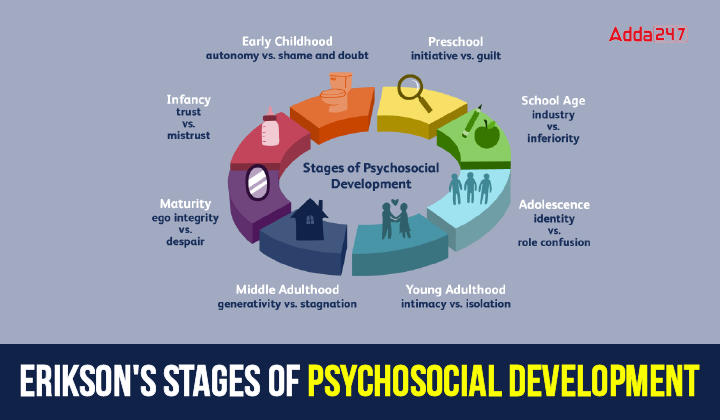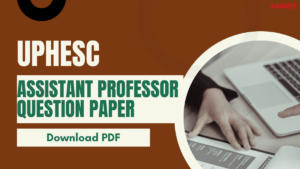Table of Contents
Erik Erikson’s stages of psychosocial development are a significant psychological framework that could potentially be relevant in the context of the Central Teacher Eligibility Test (CTET). The CTET is an Indian teacher eligibility examination aimed at assessing the eligibility of candidates for teaching positions in primary and upper primary levels. Erikson’s theory focuses on the psychosocial challenges individuals face throughout their lives and how successfully resolving these challenges contributes to healthy development. Here’s how Erikson’s stages of psychosocial development could be relevant to the CTET exam
Erikson’s Theory
- Biological because of belief that there are innate drives to develop social relationships and that these promote survival (Darwinism)
- Divided life span into eight psychosocial stages, each associated with a different drive and a problem or crisis to resolve
- Outcome of each stage varies along a continuum from positive to negative
Erikson’s stages of Psychosocial Development
- Stage 1 (birth–1) Trust vs. Mistrust
- Infants must rely on others for care
- Consistent and dependable caregiving and meeting infant needs leads to a sense of trust
- Infants who are not well cared for will develop mistrust
- Stage 2 (1–3 years) Autonomy vs. Shame and Doubt
- Children are discovering their own independence
- Those given the opportunity to experience independence will gain a sense of autonomy
- Children that are overly restrained or punished harshly will develop shame and doubt
- Stage 3 (3–5 years) Initiative vs. Guilt
- Children are exposed to the wider social world and given greater responsibility
- Sense of accomplishment leads to initiative, whereas feelings of guilt can emerge if the child is made to feel too anxious or irresponsible
- Stage 4 (5–12 years) Industry vs. Inferiority
- Stage of life surrounding mastery of knowledge and intellectual skills
- Sense of competence and achievement leads to industry
- Feeling incompetent and unproductive leads to inferiority
- Stage 5 (adolescence) Identity vs. Confusion
- Developing a sense of who one is and where one is going in life
- Successful resolution leads to positive identity
- Unsuccessful resolution leads to identity confusion or a negative identity
- Stage 6 (young adulthood) Intimacy vs. Isolation
- Time for sharing oneself with another person
- Capacity to hold commitments with others leads to intimacy
- Failure to establish commitments leads to feelings of isolation
- Stage 7 (middle adulthood) Generativity vs. Stagnation
- Caring for others in family, friends, and work leads to sense of contribution to later generations
- Stagnation comes from a sense of boredom and meaninglessness
- Stage 8 (late adulthood to death) Integrity vs. Despair
- Successful resolutions of all previous crises leads to integrity and the ability to see broad truths and advise those in earlier stages
- Despair arises from feelings of helplessness and the bitter sense that life has been incomplete.
Erikson’s stages of Psychosocial Development Study Notes PDF



 RRB Railway Teacher Exam Date 2025, Exam...
RRB Railway Teacher Exam Date 2025, Exam...
 UP GIC Lecturer Previous Year Question P...
UP GIC Lecturer Previous Year Question P...
 UPHESC Assistant Professor Question Pape...
UPHESC Assistant Professor Question Pape...














